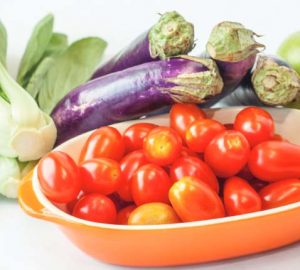Anne Osbourne writes about the benefits of eating wild fruits.
Most of us tend to purchase our fruits from the local market, supermarket or other independent stores, completely oblivious to the fact that we can actually source our produce through other means.
Foraging for fruit can actually be quite a useful addition to our diet because foraged wild fruits are generally higher in micronutrients (including vitamins, minerals, phytonutrients and anti-oxidants) compared with more commercially-grown produce.
 This is partly because wild-growing fruits can be picked when perfectly ripe, and are not sprayed with chemicals or artificial fertilized. They need to be pretty tough to survive continual insect and animal attack and this can boost phytonutrient content.
This is partly because wild-growing fruits can be picked when perfectly ripe, and are not sprayed with chemicals or artificial fertilized. They need to be pretty tough to survive continual insect and animal attack and this can boost phytonutrient content.
Whilst most people need to rely on commercially-grown fruit for their ‘five-aday’, such fruit may be lacking in certain nutrients if it has been picked under-ripe, kept in cold storage, or grown in poor soil. Including seasonal foraged fruit in your diet will help to increase the levels of healthenhancing micronutrients in your food.
It is vital to forage safely so do equip yourself with a reliable guidebooks, including clear pictures, such as the 70s classic Food for Free by Richard Mabey. Remember, not all fruits are edible for humans; in fact some may not only taste nasty, but they may actually be poisonous. Some common edible fruits that you will find in Leicester, include wild cherries (prunus avium, which come into season in July). You can often find edible cherry trees at local parks and housing estates.
Cherries are a good fruit source of potassium, beta-carotene and melatonin, and contain useful amounts of copper, iron and zinc. As a traditional remedy, they also help to alleviate gout and protect the teeth from decay.
You can start hunting for local blackberries (rubus fruticosus) in August and September. They should come away easily from the briar when ripe and did you know that Leicestershire is said to have some of the best blackberries in the UK?
Berries are a good fruit source of Vitamins C and K, folate, calcium, magnesium, and anthocyanins. In fact a 2006 study in the American Journal of Clinical Nutrition found that the anti-oxidant content of blackberries was higher than any other food tested. Other fruits you can look out for include black mulberries (morus nigra), which are high in valuable anti-oxidants, such as anthocyanins, and like blackberries, their dark pigment reflects high levels of phytonutrients. They can be found in parkland or overhanging garden walls.
Also look out for rosehips (rosa genus) and figs, which are high in nutrients. But, when foraging fruit, make sure you always ask for permission if you are picking fruit from private land and be careful to avoid fruit growing in areas where there is a lot of passing road traffic, or fruit that grows below knee height in dog walking areas.
Anne Osborne, from Leicester, is a fruit expert who has been following a fruitarian diet for over 20 years. She has published a book about the fruitarian diet called Fruitarianism The Path To Paradise’ which can be ordered from www.fruitgod.com






